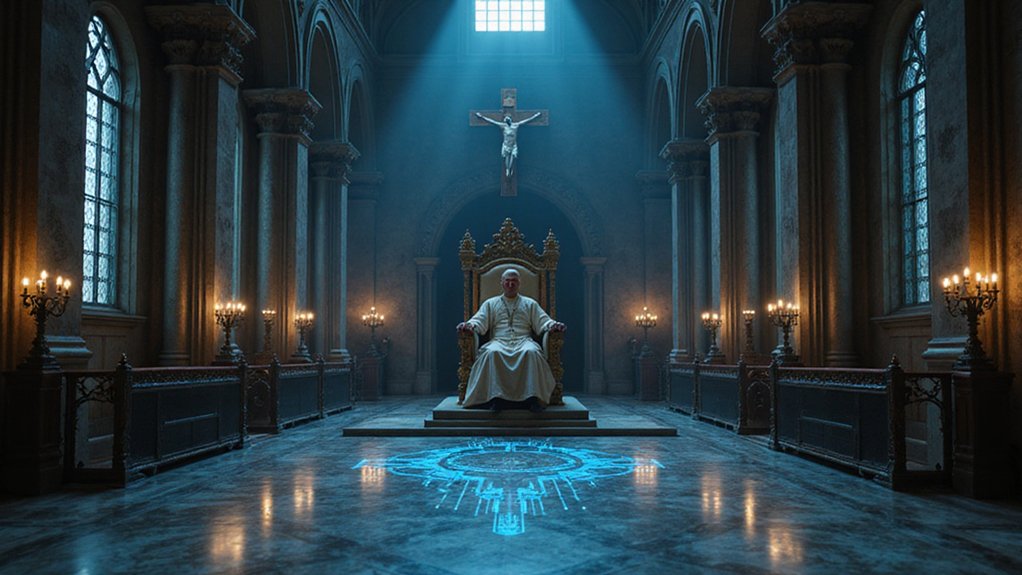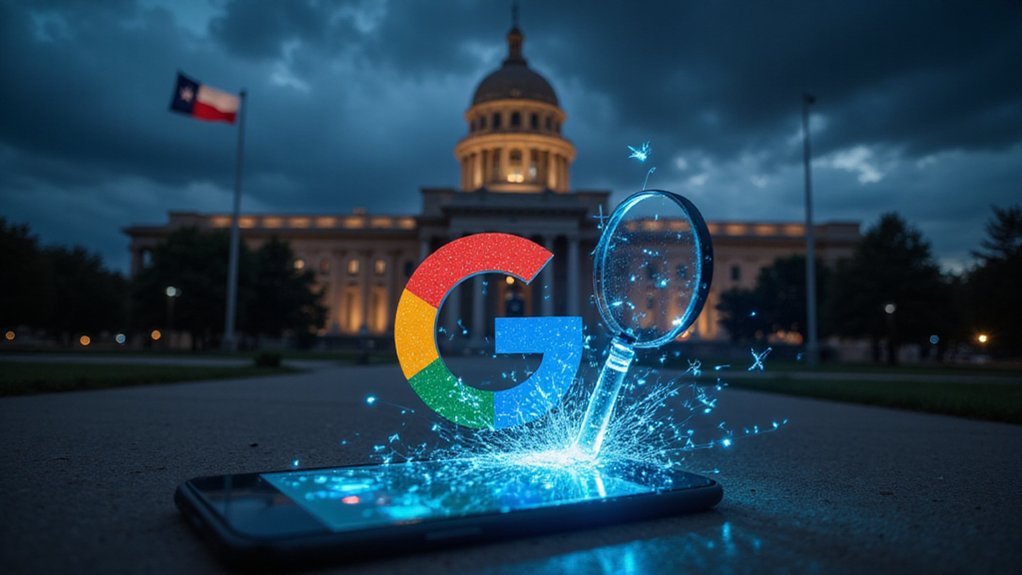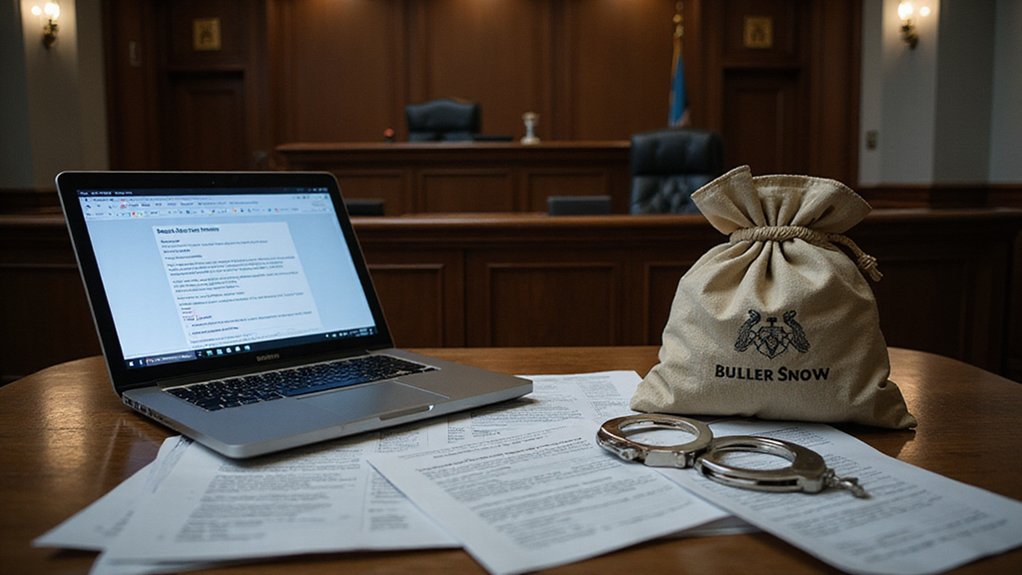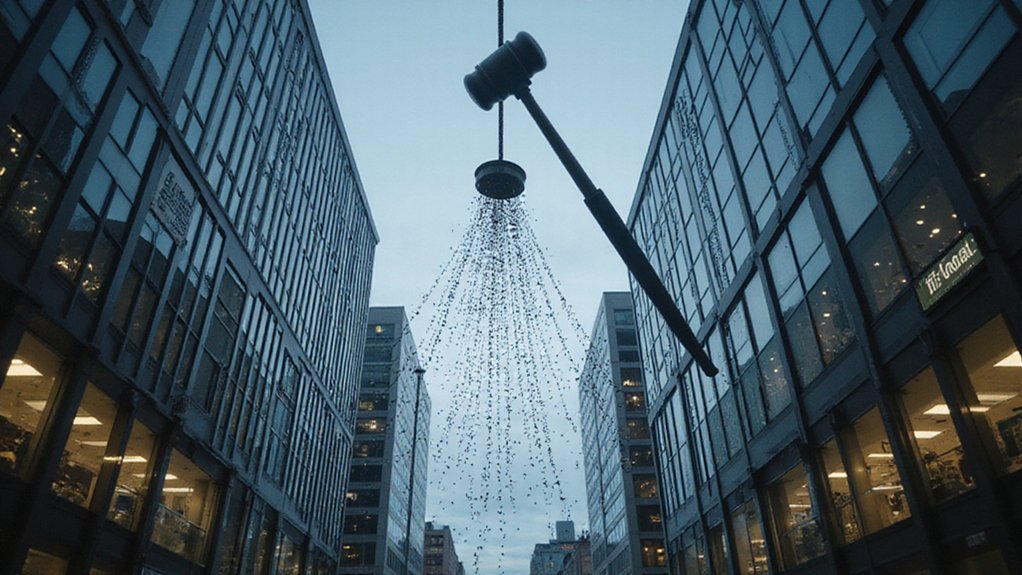As artificial intelligence continues to advance at a rapid pace, experts are raising serious concerns about its impact on human dignity. In a recent address, Pope Leo XIV warned that AI poses a greater threat to human dignity than any other modern challenge, urging leaders to guarantee technology serves humanity rather than diminishing it.
The Pope’s concerns reflect growing alarm about how AI systems reduce people to data points. When emotional recognition technology analyzes faces without considering the person’s inherent worth, it strips away humanity. The tension between consequentialist approaches and rule-based ethical frameworks further complicates AI governance.
AI reduces humans to mere data, stripping away our inherent worth and dignity with every algorithmic analysis.
Similar problems arise when AI makes decisions about hiring, healthcare, and law enforcement.
Job displacement is another major worry. AI automation could eliminate many positions, especially those requiring fewer skills. The Pope emphasized that ethical AI deployment must include plans to retrain workers and create new opportunities. Catholic Social Teaching highlights that work provides not just income but also purpose and contribution to society. He stressed that technological progress shouldn’t leave vulnerable people behind.
AI also challenges human agency—our ability to make our own choices. Some decisions may need to remain in human hands, even if machines could do them better. The Pope questioned whether allowing machines to make certain choices diminishes human dignity and self-governance.
Transparency issues compound these problems. Many AI systems operate secretly, making it hard for people to understand or challenge decisions affecting their lives. The Pope called for greater accountability in both private and public sector AI use.
Many AI harms aren’t visible individually but hurt society as a whole. Biased systems often show their problems only when looking at statistics across many cases. This makes fighting unfairness particularly difficult.
The Pope expressed additional concern about AI’s enormous environmental impact, with training a single large AI model consuming electricity equivalent to what a small country uses, further threatening both current and future generations.
The Pope suggested using Catholic Social Teaching as a framework for ethical AI, emphasizing that technology should honor human worth. He also pointed to European constitutional law as offering potential solutions to AI challenges.
“We must balance progress with preservation of what makes us human,” the Pope concluded. “AI should enhance human dignity, not diminish it.”
References
- https://geopolitique.eu/en/articles/ai-vs-human-dignity-when-human-underperformance-is-legally-required/
- https://www.sentventures.com/thought-leadership/artificial-intelligence-and-human-dignity-ensuring-ethical-automation
- https://pmc.ncbi.nlm.nih.gov/articles/PMC7605294/
- https://www.tandfonline.com/doi/full/10.1080/1323238X.2025.2483822?src=exp-la
- https://ennhri.org/ai-resource/key-human-rights-challenges/









